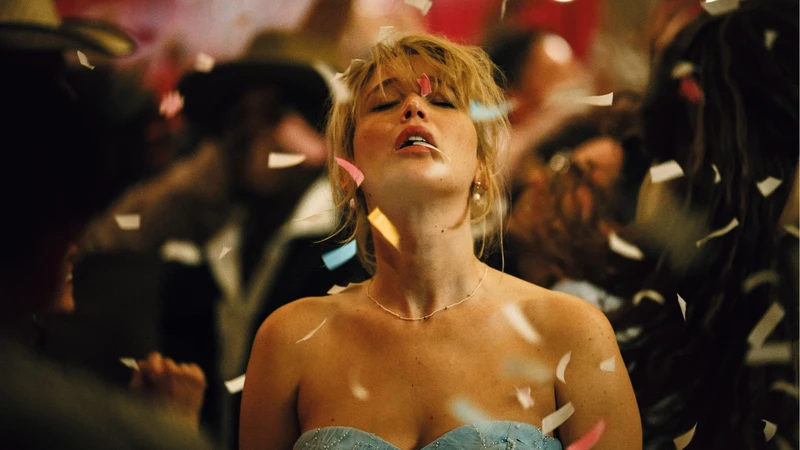"Die My Love:" Finding Beauty in the Bleak
- Rua Fay

- Nov 19, 2025
- 3 min read
Updated: Nov 19, 2025
One of the most talked-about films at this year's Cannes Film Festival was Lynne Ramsay's Die My Love. It marked the return of one of the industry's most beloved female directors, telling a story that only a woman could. Audiences throughout the festival raved about the raw, emotional script and the lead performances by Jennifer Lawrence and Robert Pattinson. The film was soon purchased by distributor, Mubi for $24 million. Expectations were ramping up fast, and they were through the roof. But when the film finally saw a wide release this month. reviews were much more mixed than anticipated, especially among the average moviegoer. So let's take a look at the film that has critics raving and couples arguing.

Die My Love is a psychological drama based on Ariana Harwicz 2012 novel of the same name. It follows young couple, Grace (Lawrence) and Jackson (Pattinson) after they move from New York to rural Montana. Soon after, Grace gives birth to their son and begins experiencing postpartum psychosis that only gets worse as the days go on. Additional cast members include Sissy Spacek, Nick Nolte, and LaKeith Stanfield. The film was brought to life by Irish writer, Enda Walsh and Scottish director, Lynne Ramsay, known for 2011's We Need to Talk About Kevin and 2017's You Were Never Really Here, in addition to being produced by Martin Scorsese and lead actress, Jennifer Lawrence.
Die My Love currently holds a critic score of 73% on Rotten Tomatoes, with an audience score of only 43%, which is unusual, but not at all shocking. Droves of people went to see this film last week with their partners, expecting a good date night movie, but instead saw something new and unfiltered that made them extremely uncomfortable. But here's the thing: that's the entire point.
It appears as though the film's greatest strength for some is its biggest weakness for others. Die My Love is an unapologetic film that wants you to feel uncomfortable. For some, it's upsetting to see a new mother not be beaming with pride and love for her baby. It's jarring to see a female character, especially a mother be so unabashedly cold and unlikable. This doesn't come as a shock to the average arthouse film lover but these are certainly different characters to see A-list actors like Lawrence and Pattinson portray. And speaking of, this very well might be the performance of Jennifer Lawrence's career. She completely throws herself into the role of Grace, playing her with such ferocity and unapologetic zeal. If there is any justice in the world, she will be in the running for some pretty big awards.
Something that the general movie-going audience needs to understand is that it's not the goal of every movie to simply entertain its audience. Die My Love is not trying to make you laugh or affirm your relationship with your significant other. Lynne Ramsay wants her viewers to think not only about how they view motherhood, but love, and the women in their life.

Die My Love is an incredibly raw film, dealing with an aspect of motherhood that is seldom explored on screen. When a woman gives birth, she is bombarded with praise, smiles, and congratulatory gifts, but not every woman feels the same joy that supposedly comes with becoming a new mother. Approximately 10-15% of mothers in the United States experience some sort of postpartum depression after giving birth, with 0.1-0.2% experiencing psychosis. While a rarity, postpartum psychosis is nevertheless a reality for plenty of American women, a reality that is rarely ever portrayed in media, and for good reason: it's not pretty. Exacerbated by the fact that every other portrayal of motherhood paints it as the greatest thing a woman can experience. But what is out there for the women who feel something different after giving birth? Do they not deserve to see themselves on screen as well? Mental illness isn't just something that makes beautiful people gloomy and pensive, it can make you cruel. Lynne Ramsay simply has the guts to show the n0t-so-Hollywood side of mental illness.
While Die My Love might not be the great time at the movies that audiences were expecting, it stands for something much more profound. It's raucous, ugly, bleak, but more than anything else: deeply human, flaws and all.


